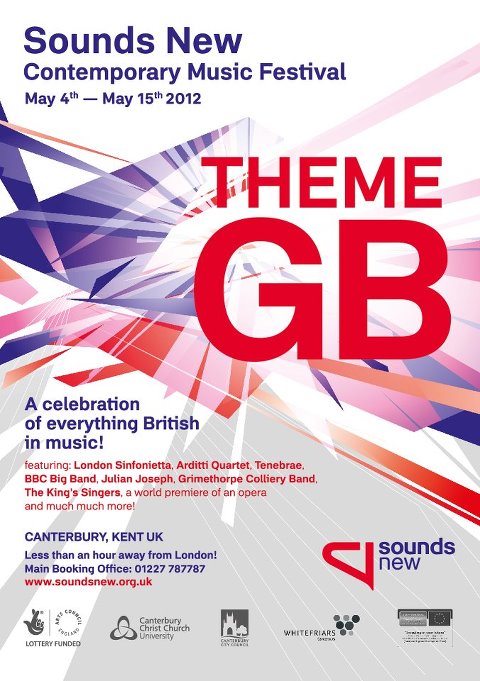 Canterbury’s annual feast of contemporary music, Sounds New, kicks off on Friday 4 May. ’Theme GB’ is ‘a celebration of everything British in music,’ and includes a profusion of events, ranging from cutting-edge commissions to poetry workshops (the latter including members of the University of Kent’s Creative Writing Department), all unfolding across the festival which runs until 15 May.
Canterbury’s annual feast of contemporary music, Sounds New, kicks off on Friday 4 May. ’Theme GB’ is ‘a celebration of everything British in music,’ and includes a profusion of events, ranging from cutting-edge commissions to poetry workshops (the latter including members of the University of Kent’s Creative Writing Department), all unfolding across the festival which runs until 15 May.
With so much to choose from, it’s difficult to pick a highlight; however, major events include a performance of Sir John Tavener’s The Veil of the Temple with Tenebrae at the Cathedral, at which the composer will also be present; the BBC Big Band and the Julian Joseph Trio come to the University’s Gulbenkian Theatre; the Arditti Quartet concert will be recorded for broadcast on BBC Radio 3; the genre-trashing Powerplant in Nancarrow and Fitkin; and the King’s Singers at the Marlowe Theatre.
Find out more about the festival on its website here, and explore some of the composers and works coming this season with audio and video examples on the blog here; or browse this season’s brochure below.
[issuu width=420 height=298 embedBackground=%231c031c shareMenuEnabled=false backgroundColor=%23222222 documentId=120327153600-93b33af584e64af58ce2fac7cdfff745 name=sn_brochure_2012_themegb username=ukcmusic tag=canterbury unit=px id=352d7507-9977-414a-57c4-d7708e5a0574 v=2]

 The University Chorus, Orchestra and soloists will render the whole series of events for you at one sitting (well, two, if you count the Interval) on Saturday at 7.30pm in the Nave.
The University Chorus, Orchestra and soloists will render the whole series of events for you at one sitting (well, two, if you count the Interval) on Saturday at 7.30pm in the Nave. Reading Thomas Owens’ excellent Bebop: the music and its players, a survey of key figures in the bebop movement – Charlie Parker, Dizzy Gillespie to name but two – recently, the writer makes the following observation:
Reading Thomas Owens’ excellent Bebop: the music and its players, a survey of key figures in the bebop movement – Charlie Parker, Dizzy Gillespie to name but two – recently, the writer makes the following observation: